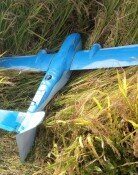Leadership for FTA
President Lee Myung-bak has urged the U.S. to promptly ratify the free trade agreement with South Korea, saying, It depends on how strong a commitment the Barack Obama administration shows. In an interview with The Washington Post ahead of the Nuclear Security Summit in Washington yesterday, President Lee said the deal could affect U.S. strategy for Asia going beyond economic cooperation between the two allies. He also said the agreement is important to the establishment of a new world order following the global economic crisis. He thus urged Obama to show strong leadership for the ratification of the accord.
Both presidents are not scheduled to hold a bilateral meeting this time since the nuclear summit is a gathering of 47 world leaders. Yet the two leaders will be sitting side by side for two hours when discussing action plans aimed to assure the safety of nuclear materials Tuesday. The free trade deal was concluded by the two countries on April 2, 2007, but ratification has not come for more than three years due to foot dragging by the legislatures of the two nations. President Lee needs to persuade U.S. congressional leaders into exerting efforts for prompt ratification. The deal provides the U.S. with a chance to export its high value-added service manufacturing and service industries, and thus create jobs even without increasing fiscal spending.
If the U.S. pledges to dismantle trade barriers in countries that block American exports while building up barriers of its own, it will lose trust with the international community. President Lee said, What Im concerned about is the possibility for the U.S. to embrace a protectionist trade policy to help revive its economy. If that happens, the U.S. will lose its global leadership. This is something for Washington to heed.
Only two years remain before the scheduled transfer of wartime operational command from the U.S. to South Korea and the dismantling of the Combined Forces Command. North Korea has conducted two nuclear tests, snubbed the six-way nuclear talks, and showed an increasingly belligerent stance. Specific evidence has yet to be discovered, but North Koreas suspected role in the sinking of the South Korean naval patrol boat Cheonan cannot be ruled out.
On if he proposed to President Lee to reconsider the transfer of wartime operational command, South Korean Defense Minister Yoon Tae-young told the National Assembly, The president knows this and is examining it through various aspects. U.S. Forces Korea Commander Gen. Walter Sharp also told the U.S. Senate military committee, A delay in the transfer of wartime operational command is an issue that must be discussed between the leaders of the U.S. and (South) Korea. President Lee must use the summit as an opportunity to explain this matter to a broad range of leaders in the Obama administration and Congress. Seoul can no longer afford to further delay discussion over shelving the transfer of wartime operational command.



![‘건강 지킴이’ 당근, 효능 높이는 섭취법[정세연의 음식처방]](https://dimg.donga.com/c/138/175/90/1/wps/NEWS/IMAGE/2026/01/18/133181291.1.jpg)



